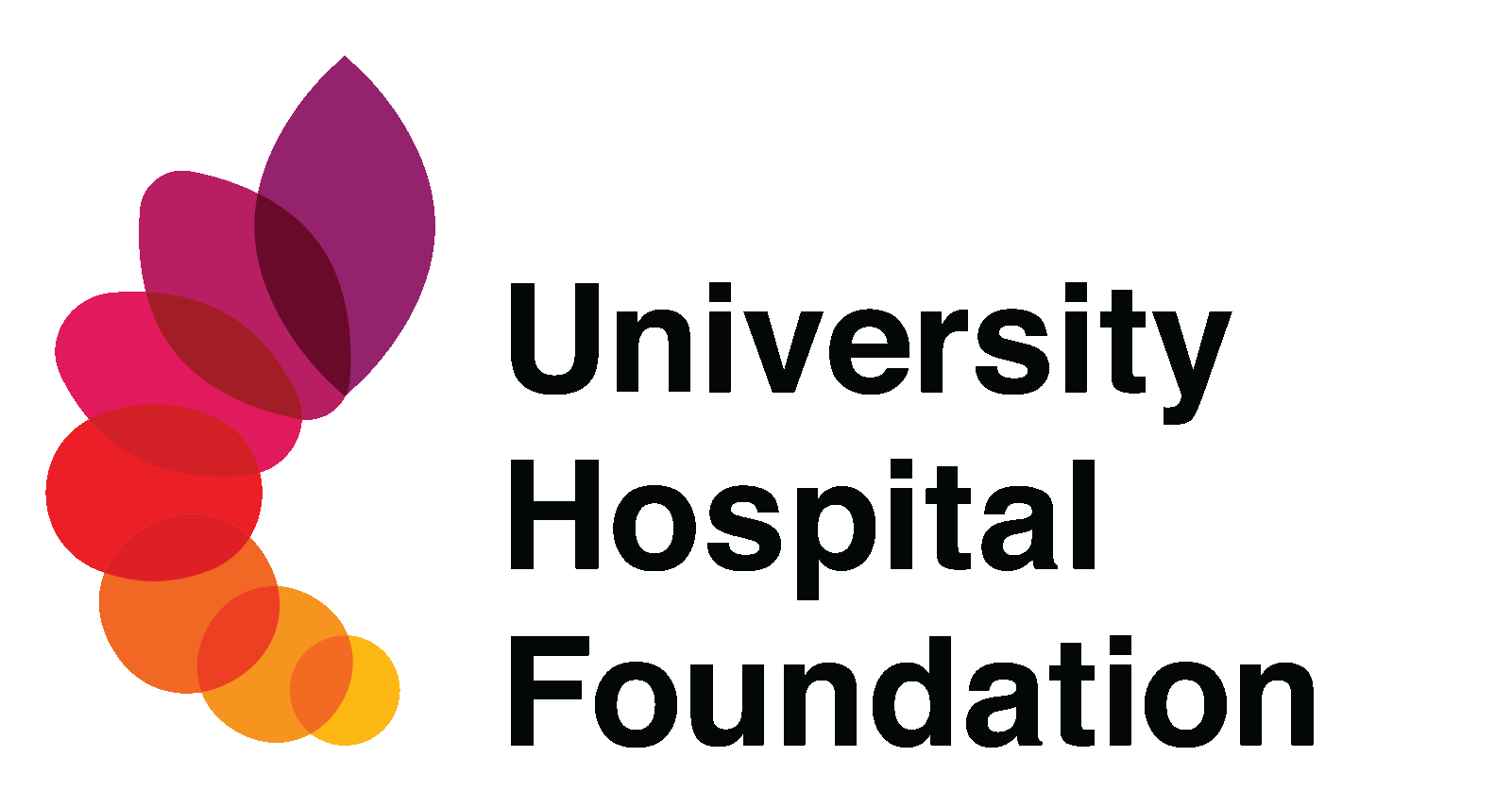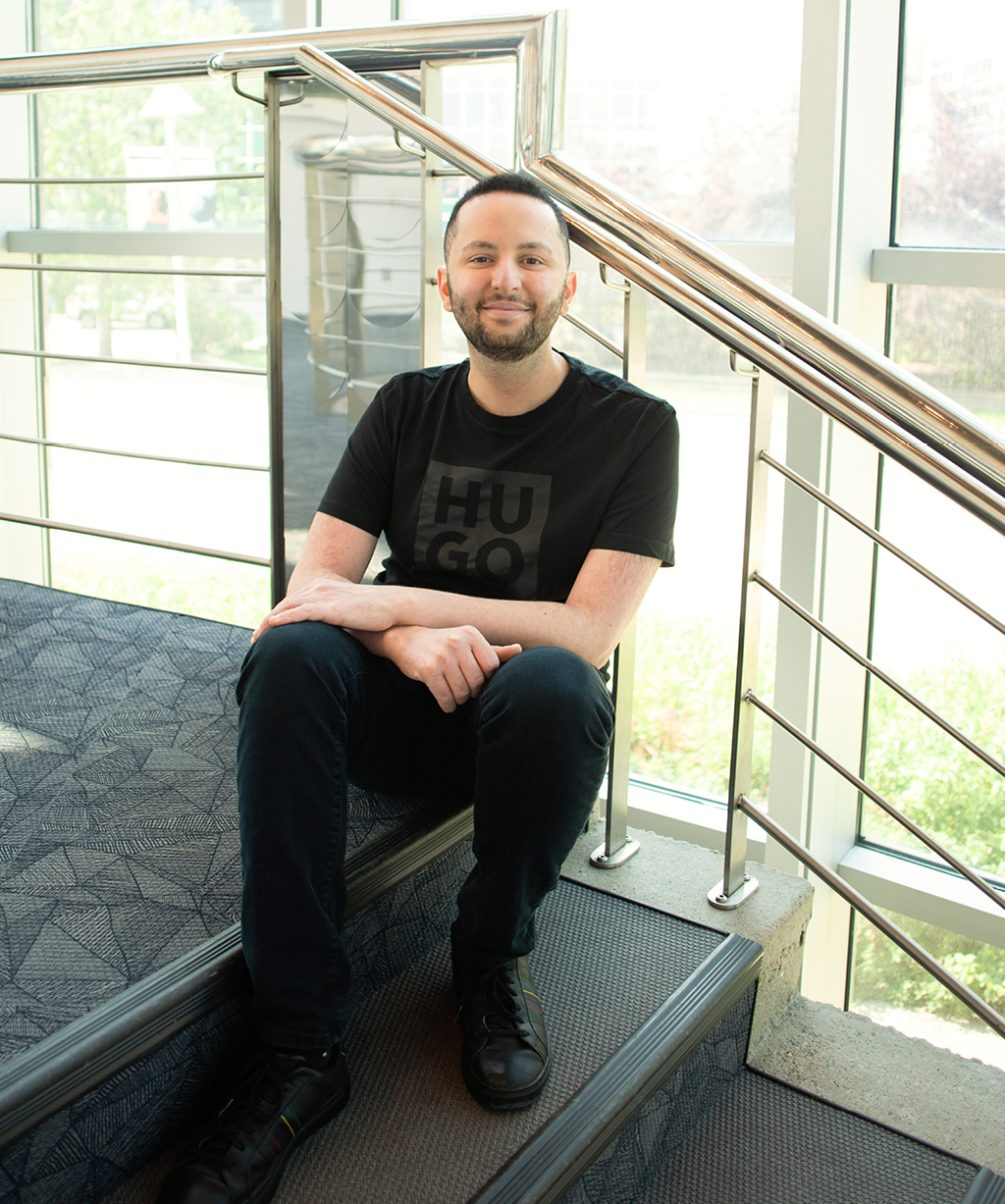Cardiac Care
The Maz takes a leadership role in treating myopathies
By DON TREMBATH / photo above COOPER & O’HARA / photo below AMANDA GALLANT
Karl would soon become the 28th person in the world to be diagnosed with Carvajal Syndrome, a form of cardiomyopathy that can lead to arrhythmias and heart failure.
Born in Lebanon, Karl Sacca and his mother visited every dermatologist they could find in search of a remedy for his hands that were so dry they would crack when he tried curling his fingers. No one, it seemed, had an answer.
“Some of the ointments they gave me made it worse,” recalls Sacca, an otherwise happy kid whose love for the theatre far outweighed his mother’s concerns. “When she told me she had found a new dermatologist we could see, I told her, ‘No way. I’m not going.’ Of course, we went. She always won those arguments.”
The doctor had a new theory, one that proved to be correct. It also saved Sacca’s life.
“He called my mom into the examination room and told her to sit down. He said, ‘Karl has a very serious heart condition. His dry hands are a symptom.’ She cried all the way home.”
Karl would soon become the 28th person in the world to be diagnosed with Carvajal Syndrome, a form of cardiomyopathy that can lead to arrhythmias and heart failure.
Fortunately for Sacca, who moved to Edmonton in 2021 to begin his Master’s degree in Fine Arts (Drama) at the University of Alberta, cardiologists at the Mazankowski Alberta Heart Institute (Maz) quickly assumed control of his care.
“We were able to assess [Sacca] and treat him very promptly in our clinic,” says Dr. Gavin Oudit, Director of the Heart Function and Cardiomyopathy Clinics at the Maz.
“He has responded very well to therapies, which included inserting a defibrillator and being able to monitor him for arrhythmias.”
“The prevalence of cardiomyopathies is about one in 500 in the general population, so fairly common,” adds Dr. Gavin Oudit.
The fact that the condition preys on young people in their mid-20s to mid- 30s makes it even more sinister. The good news, however, is that thanks to support from the University Hospital Foundation, the Maz has assumed a leadership role in developing ways of identifying the cause of cardiac myopathies, and how to eliminate the condition before they take shape.
“We have created one of the world’s largest biobanks of explanted heart tissues from patients with cardiomyopathies,” says Dr. Oudit. “This has led to international collaborations with colleagues from Boston, London, Cambridge and Berlin that have led to very high impact publications in important medical journals.
“We are now starting to unravel the molecular basis of cardiomyopathies in our patients. And by doing that, we can now go back and start correcting these with things like genome editing. We’ve done it in cells and animal models. The plan is to move this into clinical trials for patients.
“This is precision medicine at its finest. We can detect exactly what’s wrong with the patient and then edit that genetic abnormality and correct the defect. In effect, we are working towards one day eliminating the disease.”
Change Lives Today
Your support of the University Hospital Foundation is changing lives today and tomorrow, supporting a future in which you and your loved ones live longer, healthier lives.
Donate NowShare this article
Facebook
Twitter
LinkedIn

